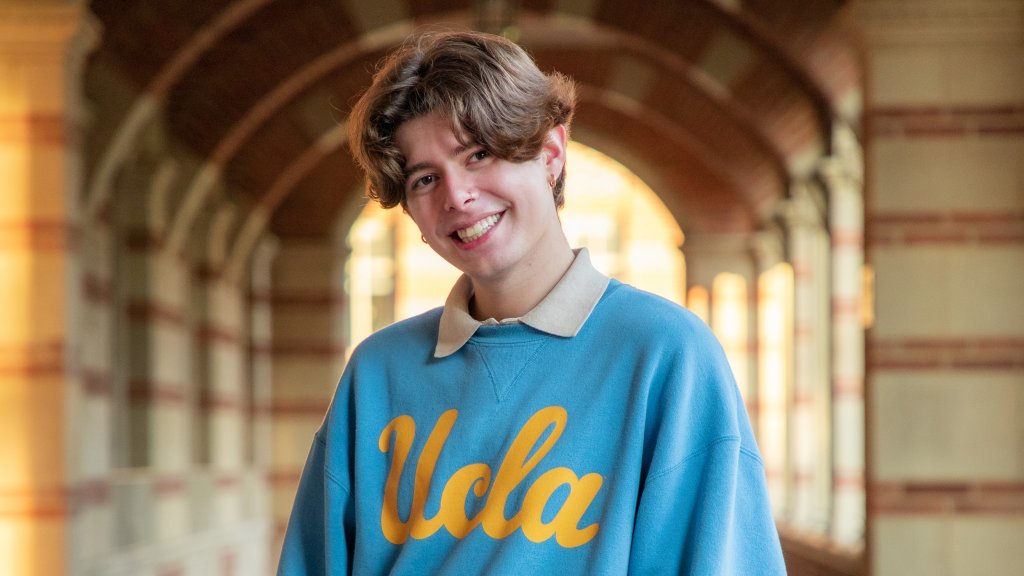It was 2019, and Herman Luis Chavez was visiting family in Tarija, Bolivia.
Chavez, who uses he, they and él pronouns, was a music student at Colorado State University at the time. They spent their days in Bolivia noodling around on their aunt’s piano and going through her sheet music. It was mostly standard repertoire — Beethoven, Mozart, Bach — until they came across a violin sonata by Atiliano Auza León, a Bolivian composer.
It was a bit of a shock.
Until then, Chavez had associated Bolivian music almost solely with folk traditions. The idea of Bolivian art music had not even occurred to them. But here was just such a composer. And as Chavez studied the music, they found fascinating invocations of Bolivian folk tunes.
Chavez didn’t know it at the time, but they had found the research topic that would eventually become the subject of their UCLA honors thesis. And after they graduate from UCLA on June 10 with a degree in ethnomusicology and comparative literature, Chavez will continue studying the subject as a Marshall Scholar at King’s College in London.
Chavez was born in the U.S. to Bolivian immigrants. After several moves during his childhood, the family settled in Fort Collins, Colorado, where the Latino population was fairly small, and the number of people with Bolivian roots even smaller.
“It was a little culturally isolating,” Chavez said. “But I’m grateful to the public schools, which exposed me to music. I found a great community with other musicians.”
As a high schooler, Chavez played cello in orchestra and listened to Bolivian folk music, before enrolling at Colorado State to study music education.
But that chance encounter in Bolivia with the music of Auza León changed Chavez’s trajectory. They wanted to study composers from outside of the standard canon, and to research ways to bring new voices into music education. Those interests led them to connect with the ethnomusicology program at UCLA, and to Cesar Favila, an assistant professor of musicology.
“I sent a blind email to Professor Favila, and he was immediately supportive,” Chavez said. “He was interested in my research, and he agreed to work with me. I couldn’t believe it — I wasn’t even yet a student at UCLA, and he was so supportive!”
Chavez transferred to UCLA in 2020. Despite the difficulty of transitioning to a new school in the middle of a pandemic, Chavez jumped into their studies and into their new research topic. Under Favila’s mentorship, Chavez won two scholarships to support their undergraduate research, including the Mellon Mays Undergraduate Fellowship.
Winning the Marshall Scholarship puts Chavez in rarified air: Only 41 scholars in the nation were chosen for the honor this year. Marshall scholars spend two years in Great Britain, which will afford Chavez the opportunity to earn master’s degrees in both musicology and global policy.
“There’s so much left to do,” said Chavez. “I love ethnomusicology, and I am also excited to study policy. The Marshall lets me explore both of those worlds.”
